Medical
List of Services

Skin Cancer Surveillance
The top 3 skin cancers are the basal cell carcinoma (BCCs), followed by the squamous cell carcinomas (SCCs) and melanomas. Ultraviolet exposure remains a major risk factor and hence most skin cancers appear on sun-exposed skin. These skin cancers, if picked up early, are highly curable.
We provide skin cancer checks where our dermatologist will examine your skin for any suspicious lesions. A dermatoscope, which is as handheld device, will aid in skin examination. If there are any suspicious lesions, a biopsy may be recommended. A biopsy involves taking a sample of the lesion for histological examination to confirm the diagnosis. The results may take 1 to 2 weeks. After which a more definitive plan will be discussed.

Eczema
Atopic dermatitis (AD) is a form of eczema characterized by dry, itchy, and inflamed skin.
Although a chronic condition, with proper skin care and various treatment modalities, eczema can be properly managed. Our dermatologist will discuss prescriptive treatment options which may be more suitable to your individual needs. These range from topicals to oral medications to biologics.
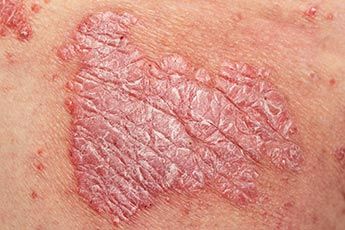
Psoriasis
Psoriasis is a chronic inflammatory skin condition that may appear as well defined scaly red rashes on the various parts of the body. It may also involve nails and scalp. There may be other associated health conditions seen with psoriasis such as arthritis, inflammation of the eyes, inflammatory bowel disease and metabolic syndrome. In recent years, there are many advances offering patients more treatment options. These include topicals, oral medications and injectables.

Hidradenitis Suppurativa (HS)
This is a chronic inflammatory skin disease with recurrent painful discharging boils, abscesses, swollen lumps resulting in scarring that are usually noted in the underarms, groin, buttock and under the breast folds. Onset can be as early as adolescent age however, only brought to light when they are much older. Depending on the severity of the condition, our dermatologist will discuss lifestyle changes and treatment options. These include antiseptics, antibiotics, retinoids, immunosuppressive treatments (such as biologics) and surgery if required.

Acne
Usually a malady of puberty, it can have significant impact on quality of life. Initiating proper skin care early is important. There may also be other causes of acne-like rash. In acne, oral medications may be helpful. Discuss with our dermatologist on a treatment regime that is suitable for your skin.

Rosacea
There are various forms of rosacea from red flushed skin with fine fixed blood vessels, to acne-like lesions, to variants involving the eye. It can be mistaken as an inflammatory skin condition or acne. Have a chat with our dermatologist. Multiple options of topical treatment and oral medications are available.

Urticaria
Urticaria also known as hives is characterized by itchy, raised welts on any part of the body. It can rapidly change in size, shape and fade. Often the intense itch bother patients the most. When experienced daily for more than 6 weeks, it is called chronic urticaria. Cause is usually unknown. Antihistamines are helpful. When more severe, injectables may be required.

Viral Warts
These are little growths on skin caused by the human papilloma virus (HPV). It can occur on any part of the skin, singly or multiple lesions. It may appear as rough bumps with tiny pinpoint dots.
Various methods from topicals, to cryotherapy, to surgical methods to immunotherapy can be used depending on the size and site and persistence.

Molluscum Contagiosum (MC)
This is a skin infection caused by the molluscum contagiosum virus. It appears as a smooth dome shaped bump often with a central depression. These are usually harmless and may clear up on its own.
Some patients chose to have it treated though. See our dermatologist, if you are unsure if the spots are MC.
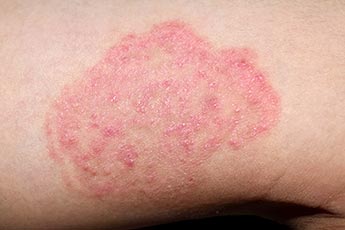
Fungal Infections
Tinea – these are skin infections caused by fungus usually in moist warm parts of the skin. Also known as ringworm, athlete’s foot, jock itch, it can appear as itchy red scaly skin rashes, some with rounded borders or some with blisters and cracked painful skin. It can be treated with topical creams but sometimes require oral anti-fungals.
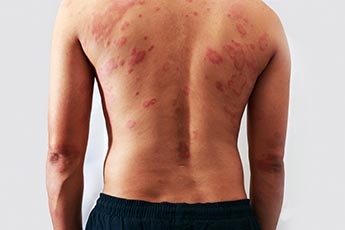
Rashes
There can be many reasons for a rash. See our dermatologist for an evaluation. Sometimes a skin biopsy or blood tests may be required.

Vitiligo
An inflammatory skin condition where the skin loses its pigment resulting in well-defined white patches on the skin. It is not life-threatening nor contagious but may affect quality of life. Treatment may slow down the process and return some colour to the skin.

Excessive Sweating
Excessive sweating or hyperhidrosis can be distressing, interfere with school, work and social situations. It may affect the whole body or certain parts such as the palms and feet. Discuss with our dermatologist on treatment options.
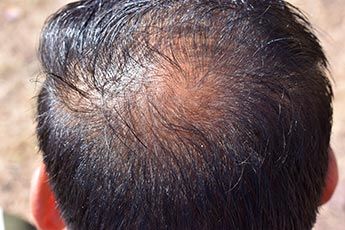
Hair Loss
Hair loss also known as alopecia may be a result of autoimmune conditions, medications, genetics or even stress. Evaluation may involve blood tests and at times, skin biopsies to help identify the cause. Treatment would be guided by the underlying cause.
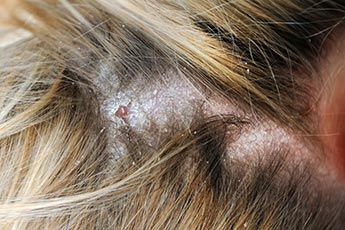
Scalp Itch and Dandruff
There can be various causes such as a type of eczema over the scalp, an allergy to something applied on the scalp or scalp psoriasis. Get a review with our dermatologist. Treatment includes medicated shampoos, topical lotions or sprays. Further management will be guided by the underlying cause.

Nail Dystrophy
There can be many causes of rough nails such as fungal infections, inflammatory skin conditions or even skin cancers. See our dermatologist for an assessment.
